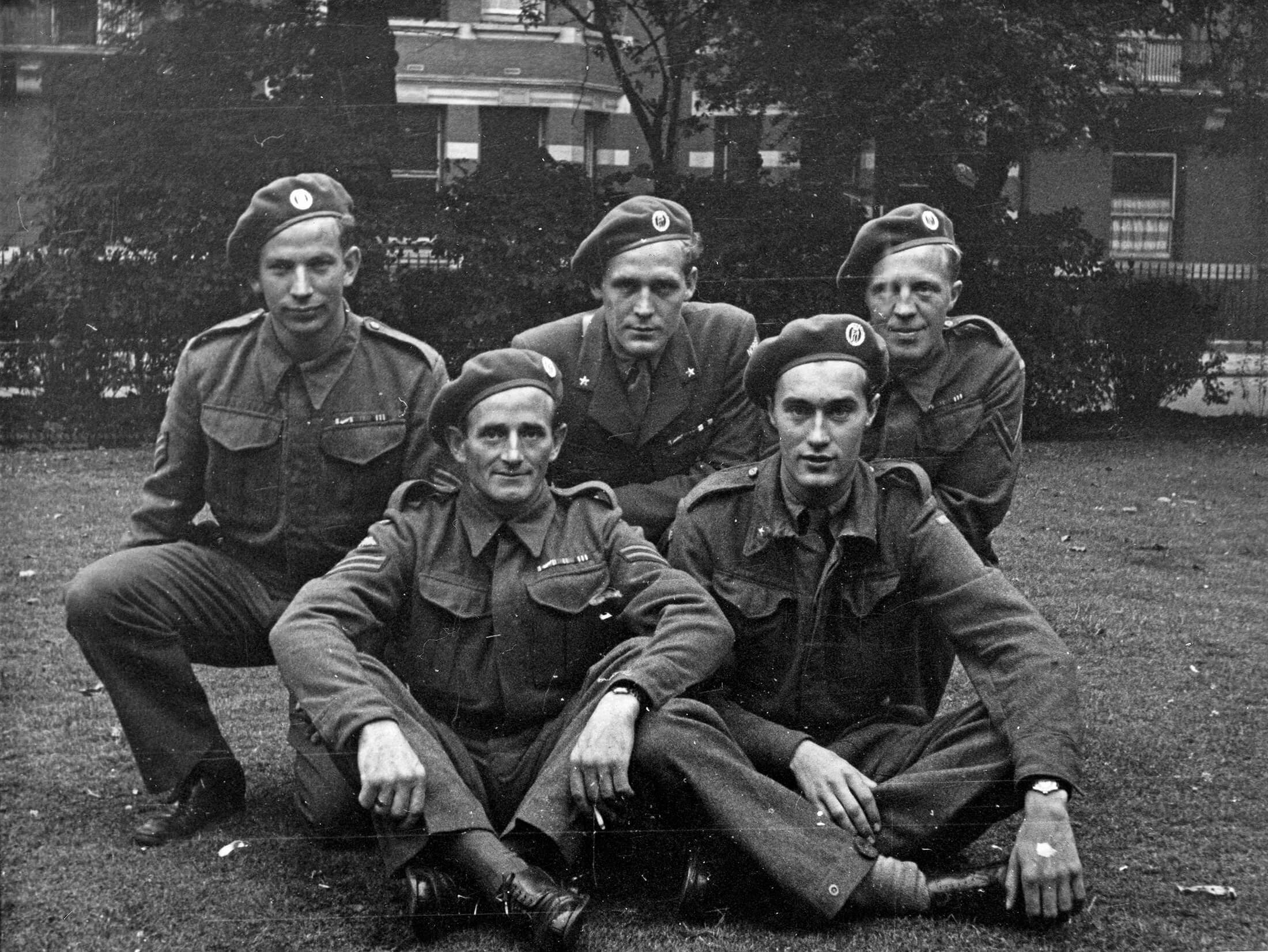Follow in the feet of heroes. Stand where the heroes stood. See the result of the mission that changed the course of history, while also learning about a major, important part of Norwegian history.
The heavy water cellar
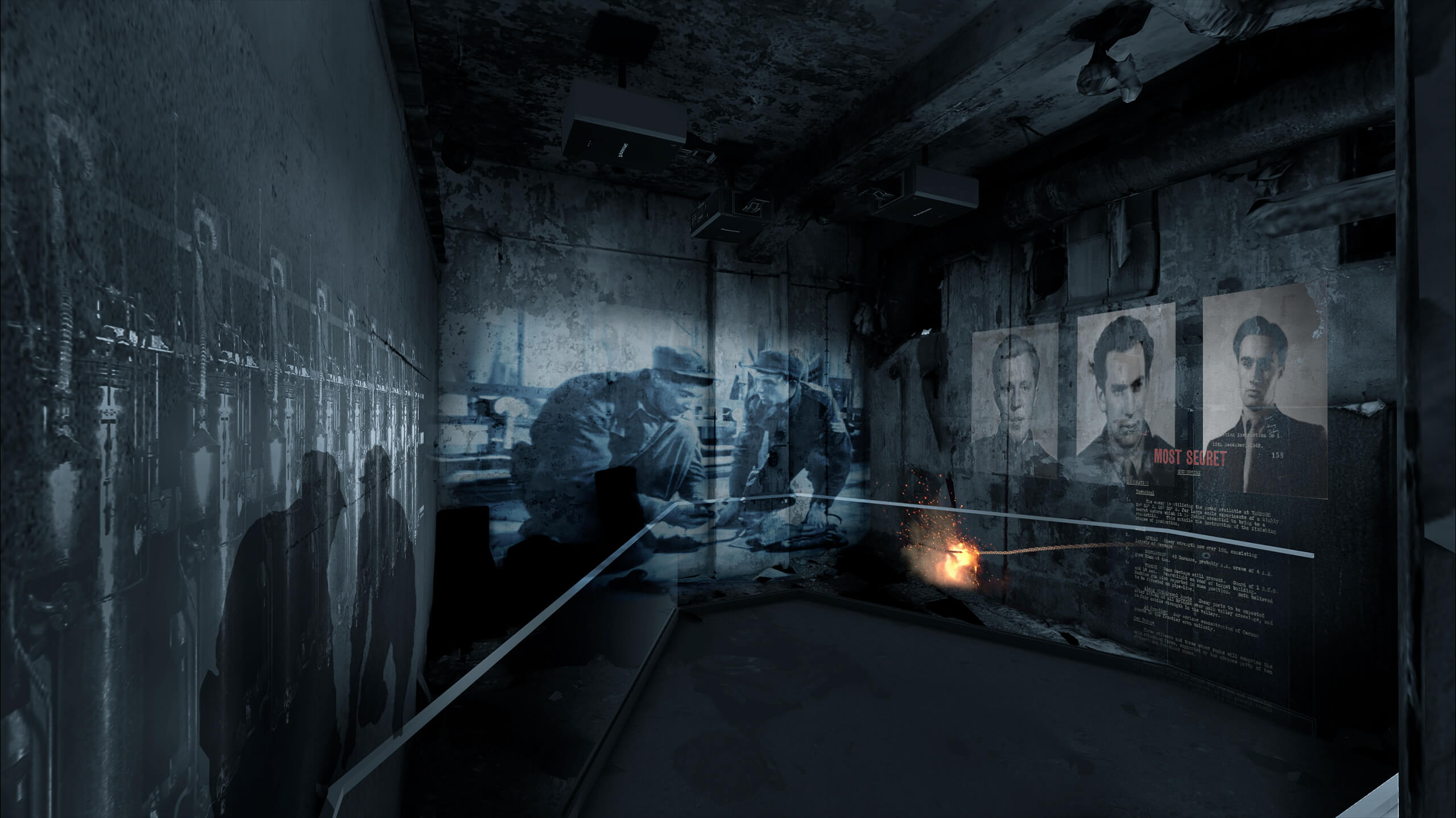

Follow in the feet of heroes. Stand where the heroes stood. See the result of the mission that changed the course of history, while also learning about a major, important part of Norwegian history.
Eight decades after one of the world’s most renowned military operations, you are invited to a soul-stirring and interactive new exhibition in the Heavy water cellar – the very site where the daring sabotage mission took place, leading to the destruction of the heavy water cells at Vemork and preventing the Germans from developing a potential atomic bomb.
Get tickets here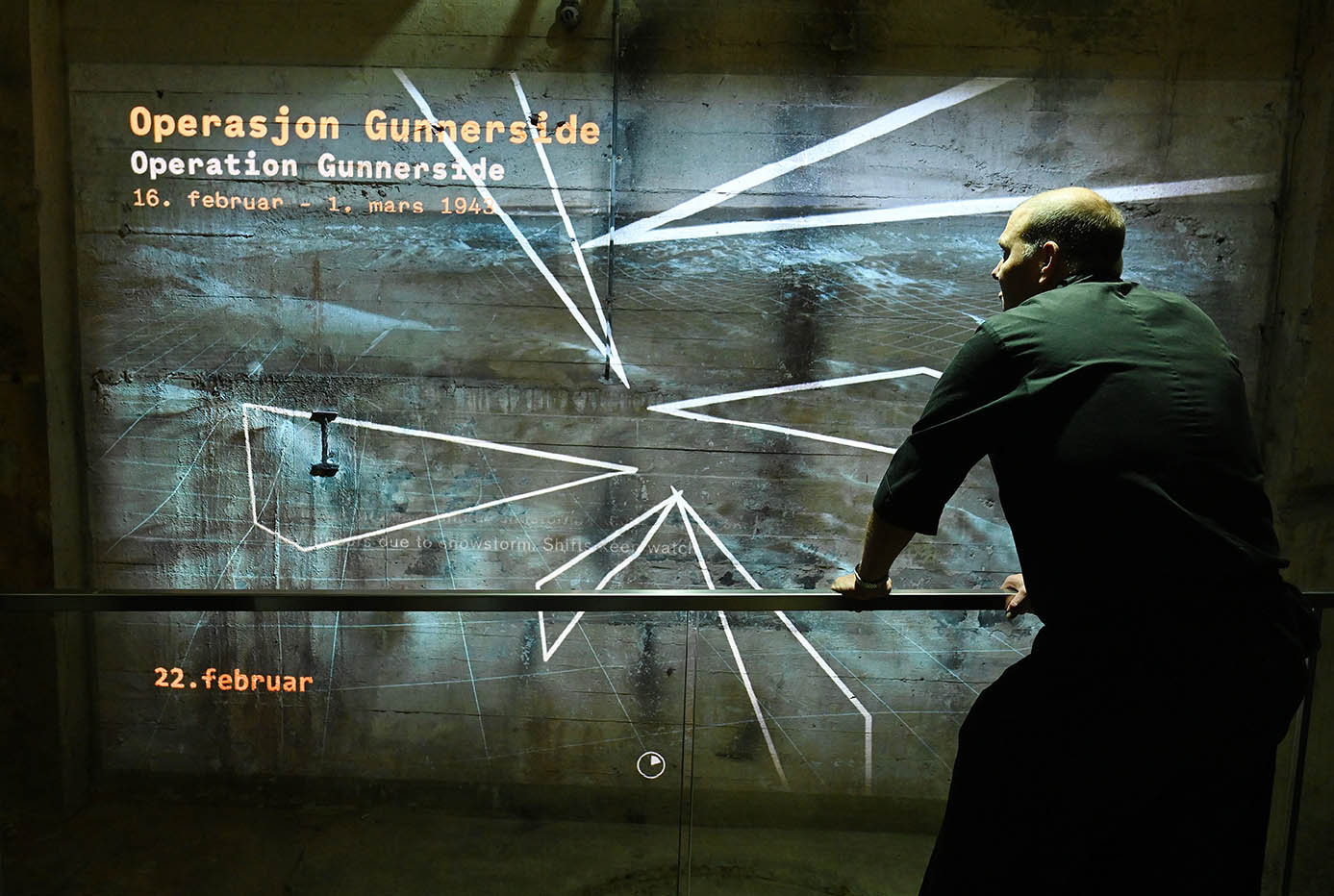
What was the true nature of the dramatic history? Why did the saboteurs make the choices they did? And who were they as individuals? In the Heavy water cella , you are invited to consider several dilemmas that the saboteurs faced during the operation – precisely in the same rooms where they stood on the night of February 28, 1943.
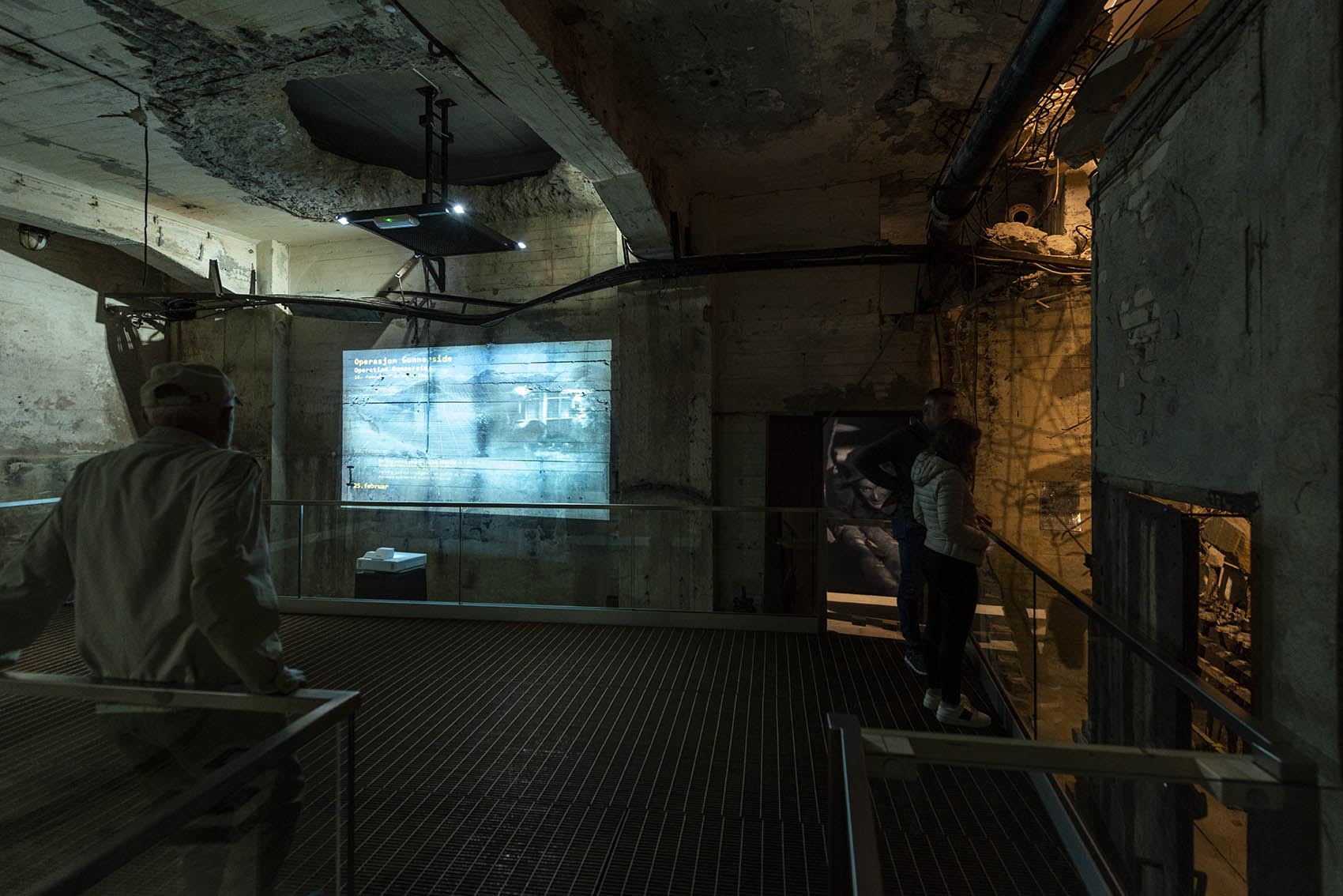
Using AR technology, we follow the path of the saboteurs to Vemork, the attack on the factory, and their escape after the mission was accomplished. Solve tasks and embark on a voyage of discovery with UV flashlights. Witness the process of producing heavy water through an animation. Experience the room where the heavy water cells were detonated. The historical events are conveyed in a spectacular and vivid manner through films and animations projected on the walls.
The exhibition is suitable for all ages, across generations.
The entire experience within the Heavy water cellar is included in the admission ticket to Vemork.
Get tickets here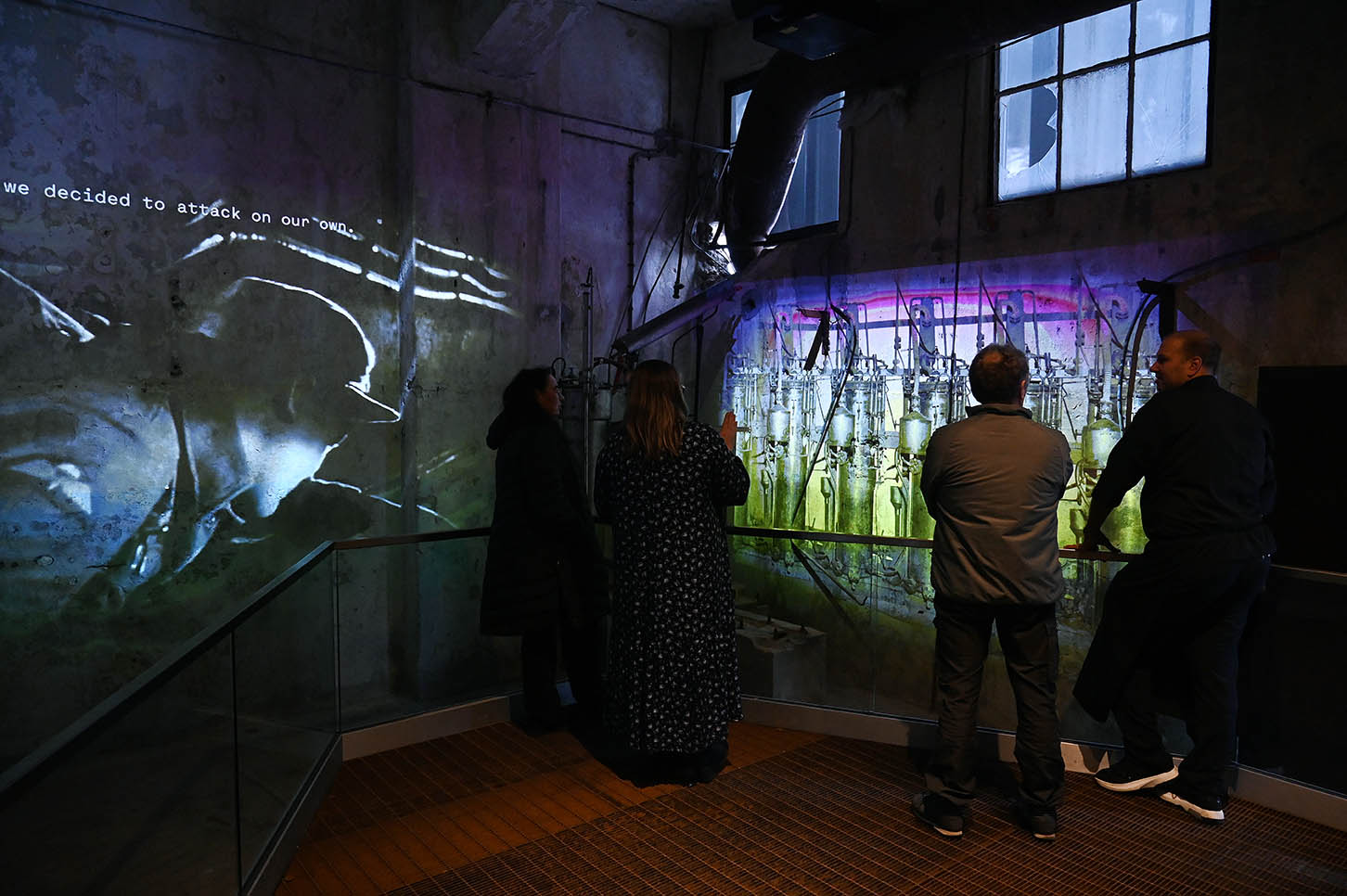
Due to high demand during the summer, we have arranged bus transportation from Rjukan Station in the city center, ensuring round-trip journeys to and from Vemork every 30 minutes. When purchasing your Vemork ticket, the designated time on the ticket will indicate your departure time from the city center.
Get tickets here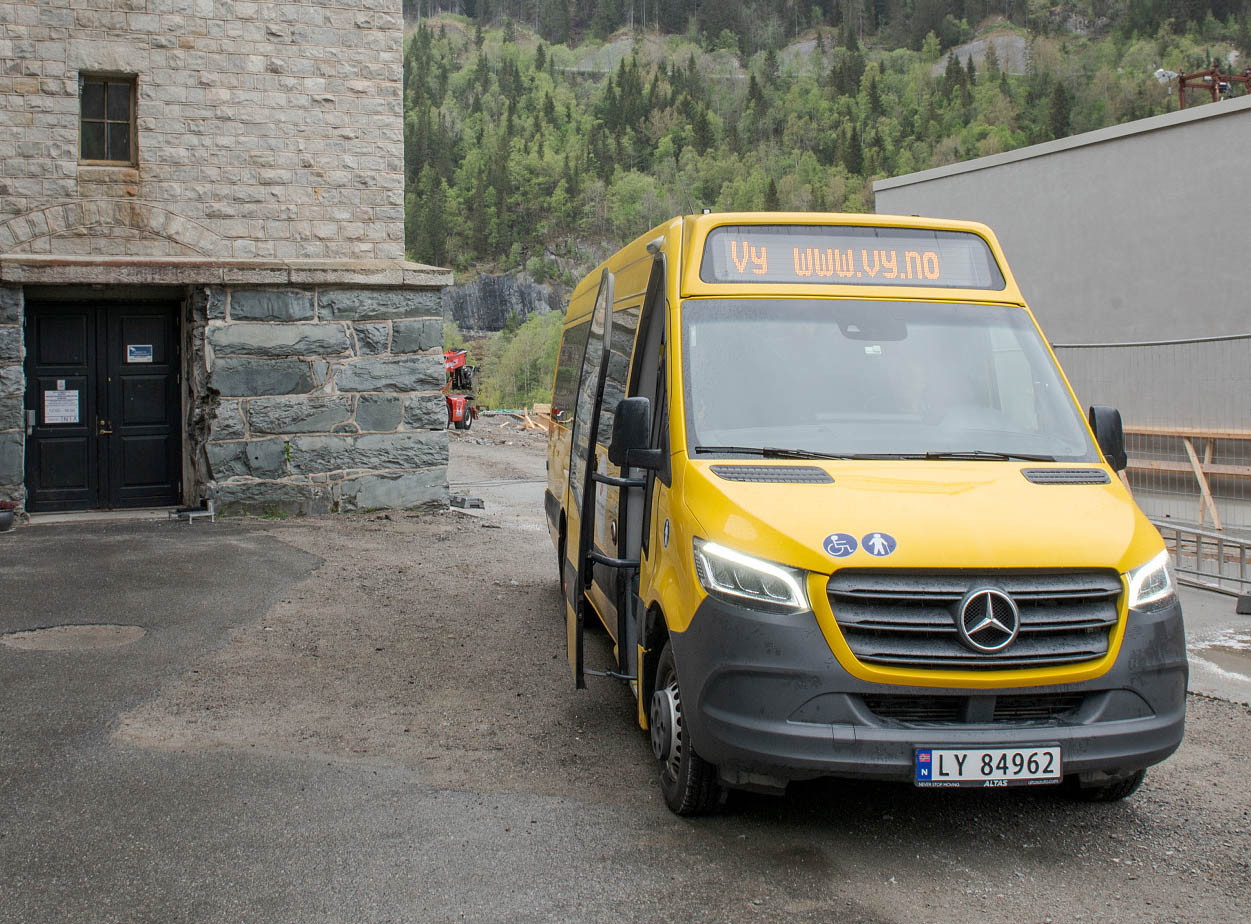
The Saboteur’s Trail is an 8-kilometer-long path that begins at Rjukan Fjellstue and ends at the Vemork Power Station. Along this trail, you will follow the exact route taken by the saboteurs on the night of February 28, 1943. From June to August, we organize daily guided tours that lead you through the thrilling path of Operation Gunnerside.
More about The Saboteur’s Trail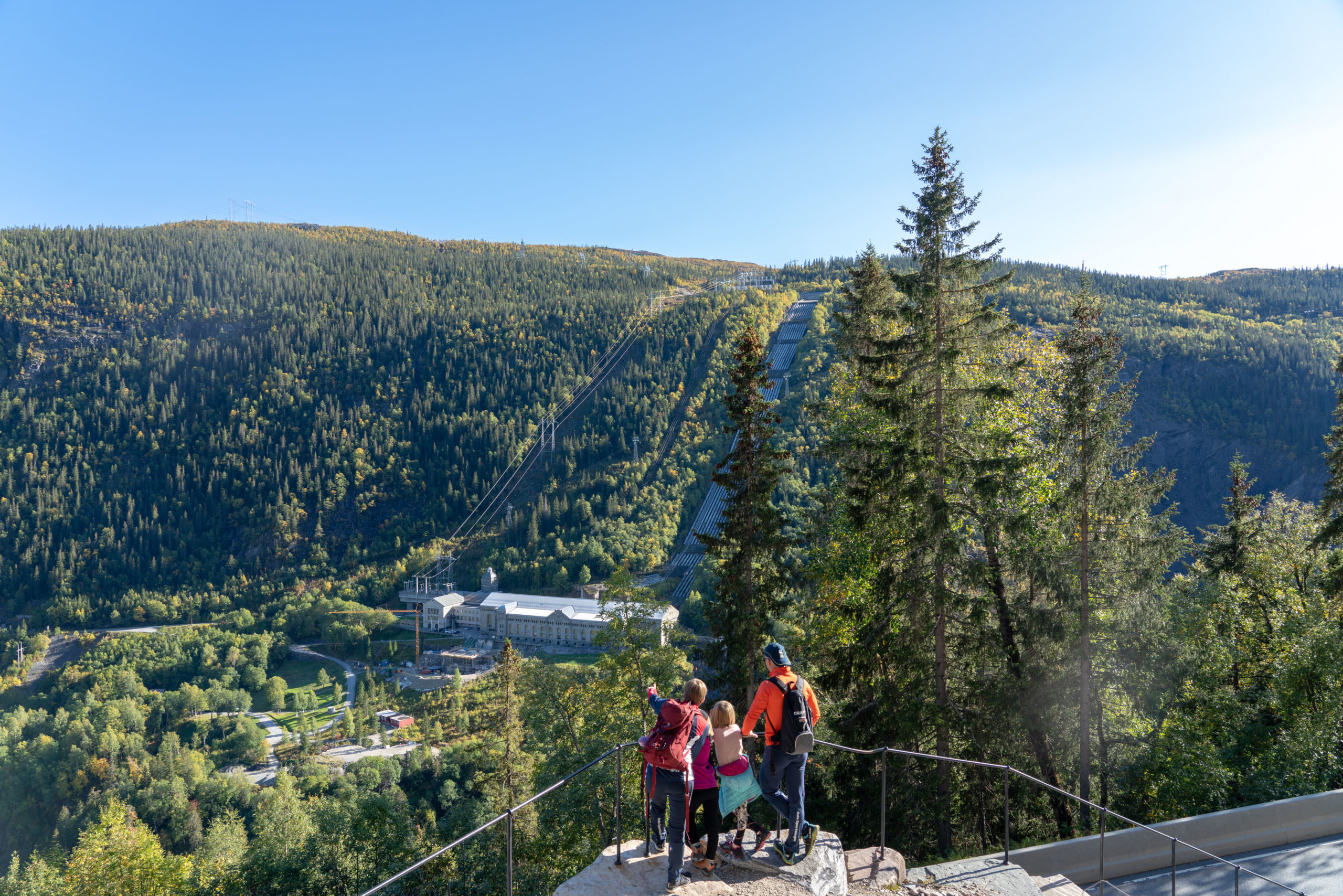
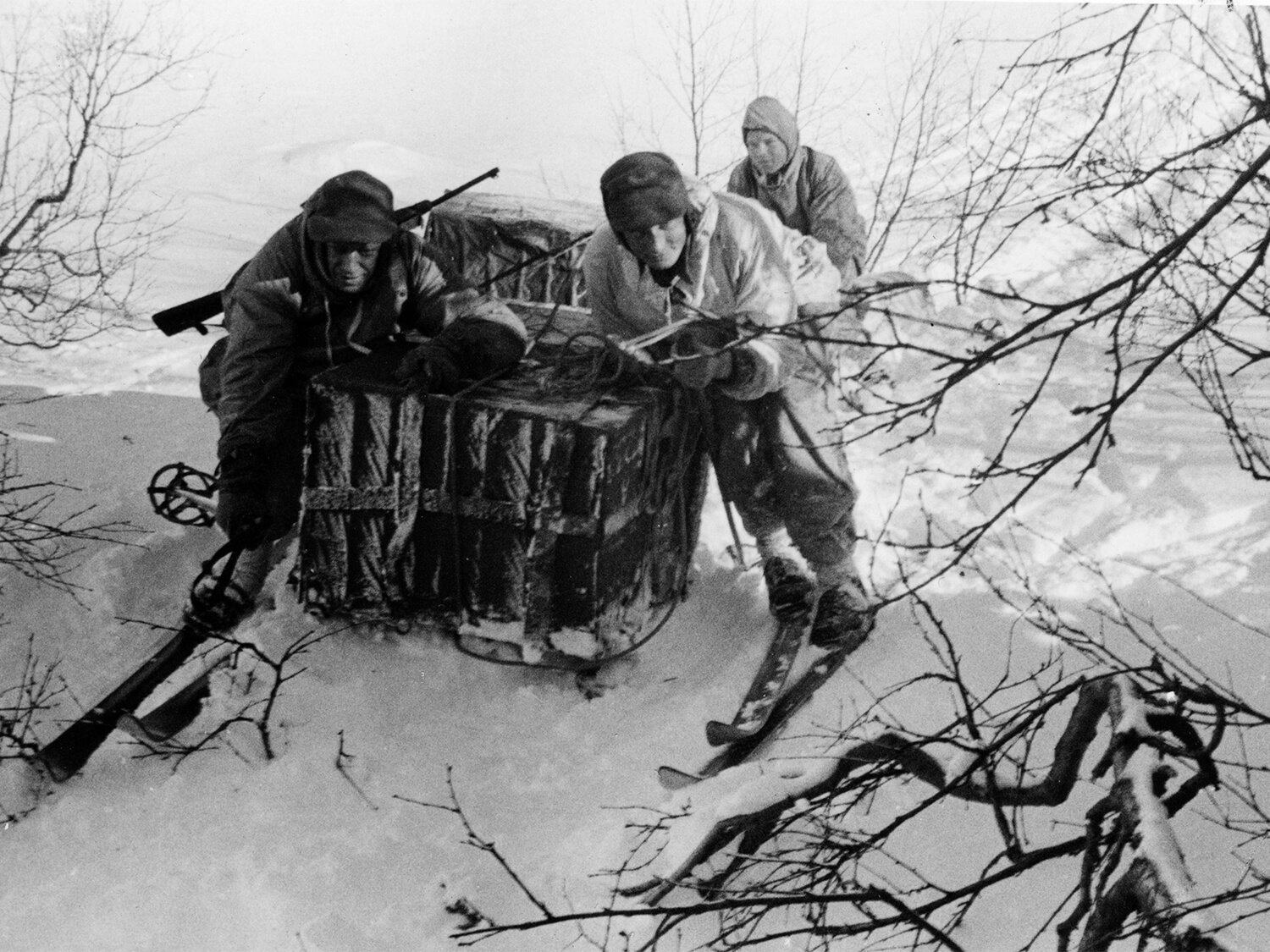
The Heavy water cellar is most renowned for the sabotage mission carried out on the night of February 28, 1943, but it is also part of a larger history. The story of the hydrogen factory. This spectacular structure, meticulously situated on the steep mountainside, right on the edge of the cliff.
Here the icy waters from the Rjukanfossen waterfall thundered down the mountainside, creating ideal conditions for hydrogen production. Locally, the factory was simply known as “Vannstoffen,” and the building was completed in 1929. They called it “a building engineering achievement”. And it was.
The Heavy water cellar opened on June 18, 2022.
The entire experience within the Heavy water cellar is included in the admission ticket to Vemork.
Get your tickets here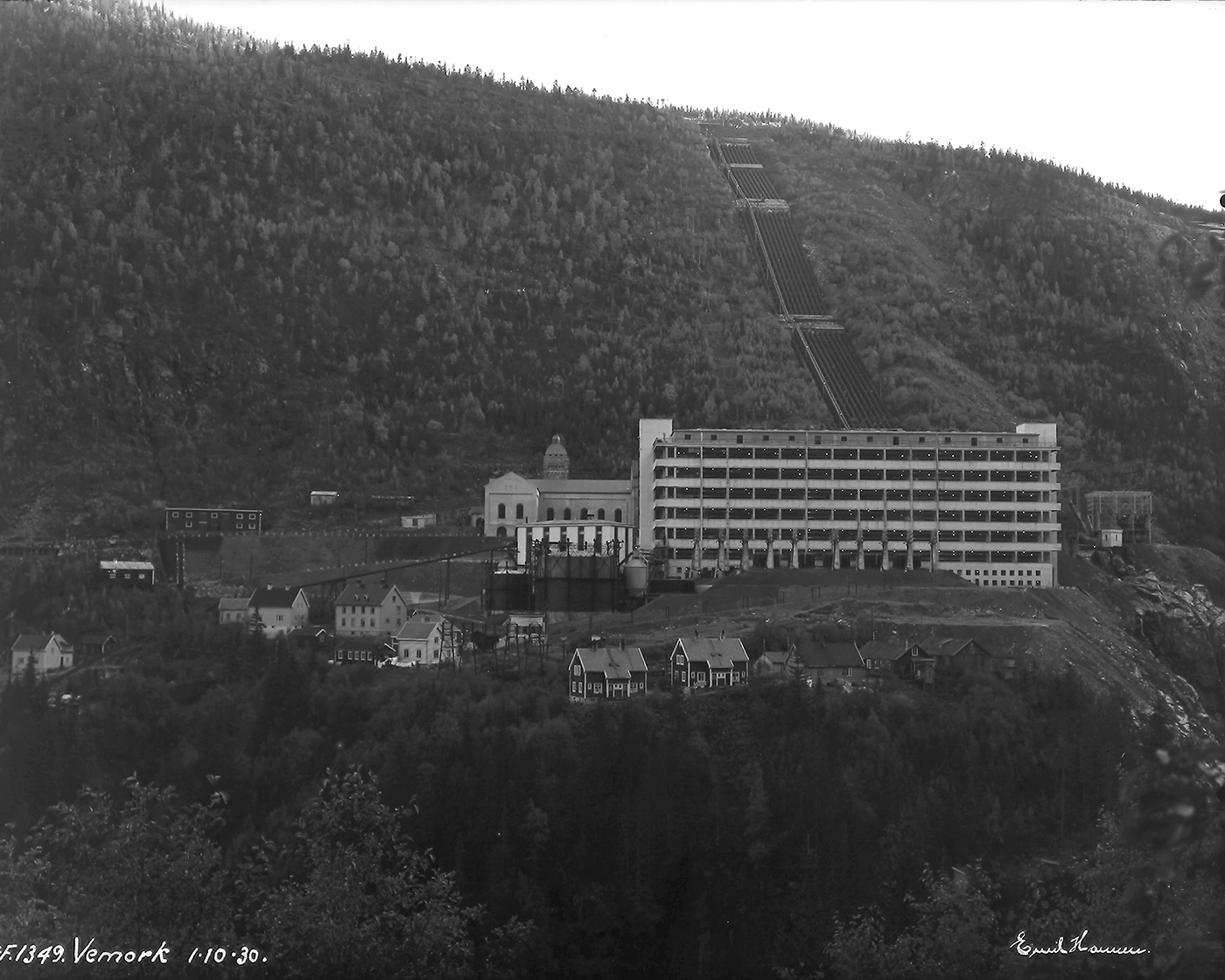
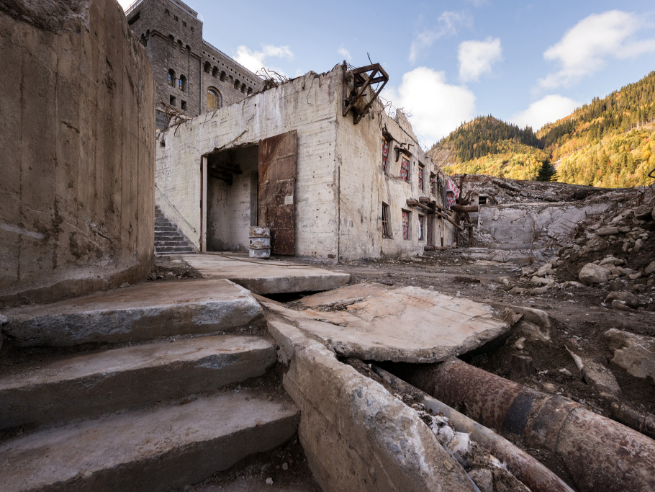
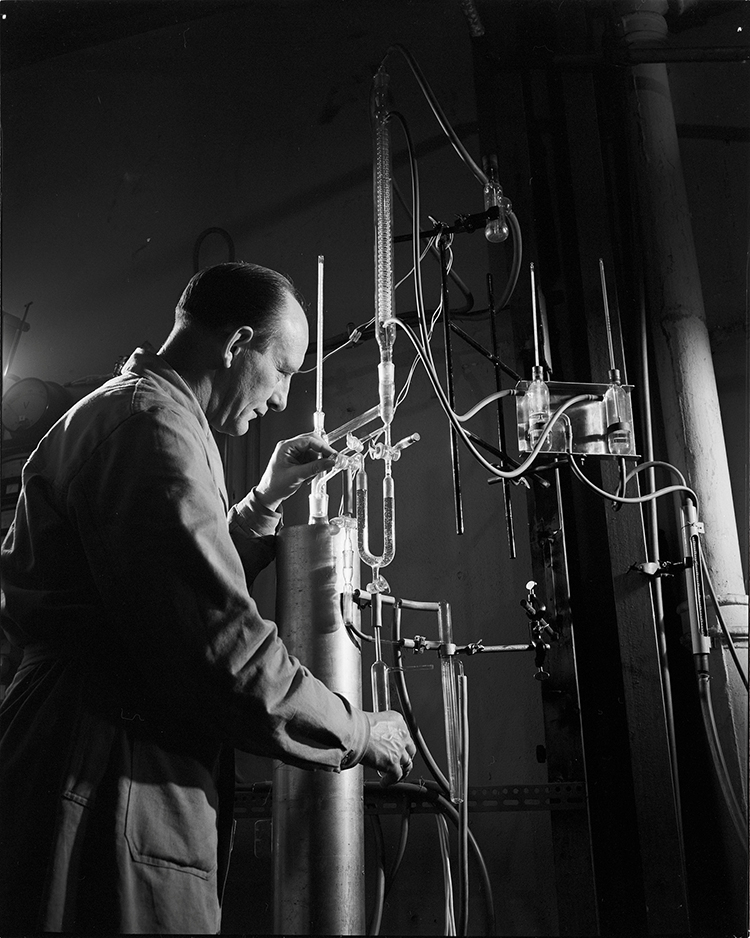
The story of the heroes in Telemark has spread worldwide. It has been recounted in TV series, documentaries, podcasts, articles, books, and films. Below, you will find a small selection to help you be better prepared for your visit to Vemork.
The podcast series “Tungtvannsaksjonene” on NRK (Norwegian Broadcasting Corporation) tells of all the dramatic actions to prevent Nazi Germany from obtaining Norwegian heavy water, which they needed to develop atomic weapons. The series covers the failed Operation Freshman, the detonation of the cellar at Vemork, the dramatic escape that followed, the bombing of Rjukan, and the sinking of the Hydro ferry on Lake Tinn. In a bonus episode, the significance of the heavy water operations is discussed, both as acts of sabotage and as a heroic narrative.
LISTEN TO THE EPISODES HERE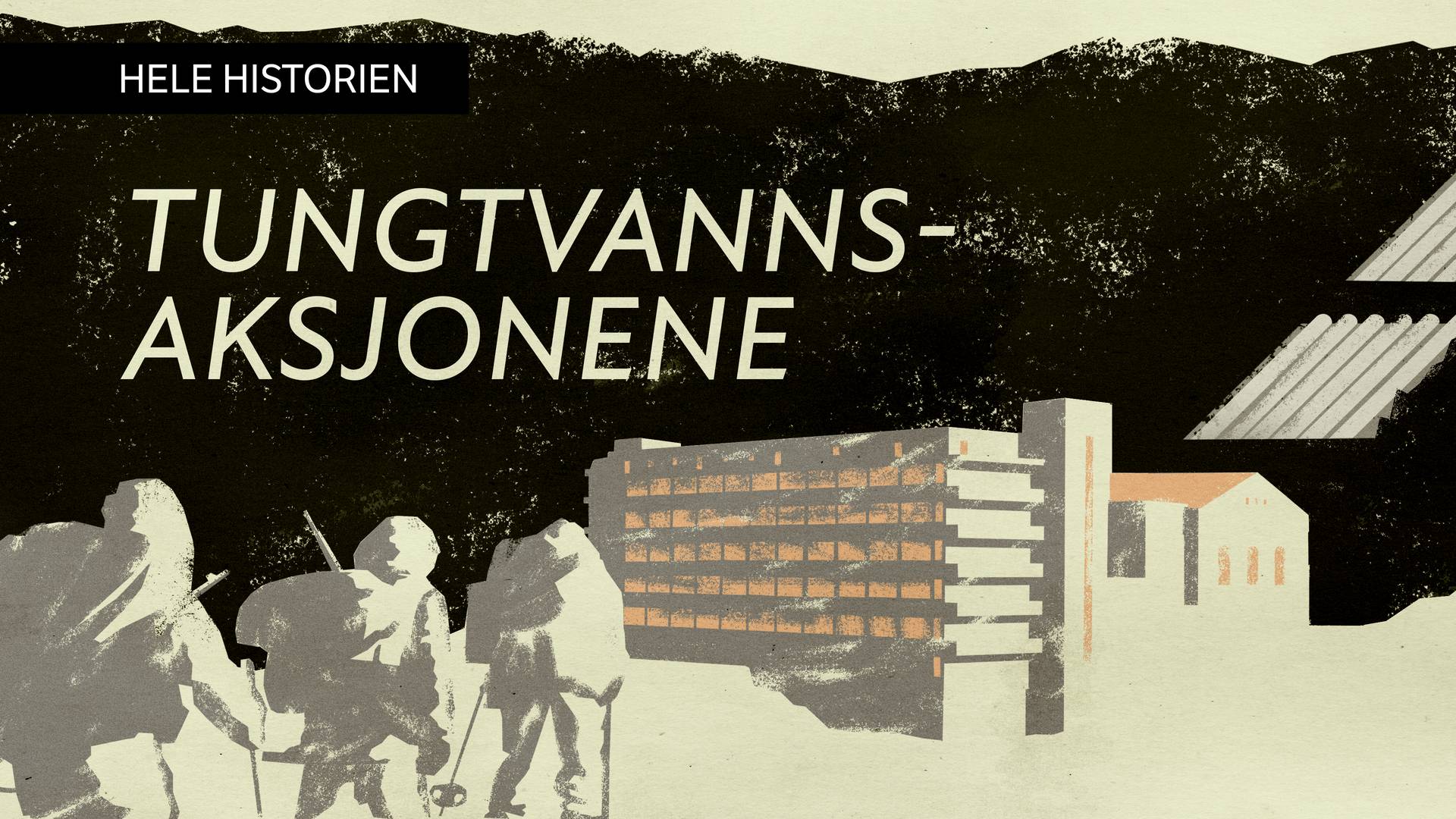
In this fascinating documentary, you have the opportunity to accompany archaeologists as they excavate their way down to the Heavy water cellar in the autumn of 2017. There, time had stood still for 40 years.
In this captivating Norwegian drama series, the battle for heavy water is portrayed from four different perspectives: the Germans, the Allies, the saboteurs, and the company that owned the factory and the heavy water.
National Geographic interviews Neal Bascomb, the author of the book «The Winter Fortress: The Epic Mission To Sabotage Hitler’s Atomic Bomb».
On the edge
A distinctive Functionalist building of grey concrete surfaces broken up by rows of windows balanced on the edge of the gorge. During the day it loomed over the surroundings. After dark, the light from the windows shone out over the valley. The 99-metre long and 40-metre wide building, designed by architect Thorvald Astrup, became a tourist attraction in itself.
From everyday life to heroic actions
The hydrogen plant was the world’s largest water electrolysis facility. This created new jobs and attracted workers of all kinds from all over Norway. Had it not been for them, or Vemork, Rjukan and Notodden would never have grown to become what they are today. You can learn more at the World Heritage Centre Rjukan-Notodden.
The production of heavy water began in 1934. In the spring of 1942, experiments demonstrated the possibility of producing plutonium in the reactors. It was this development that raised concerns about the Germans potentially creating atomic weapons. Thus, on the night of February 28, 1943, 11 saboteurs embarked on their mission. Infiltrating the Heavy Water Cellar undetected, they detonated explosives, thwarting the enemy’s potentially catastrophic plan and preventing a deadly reality from taking shape.
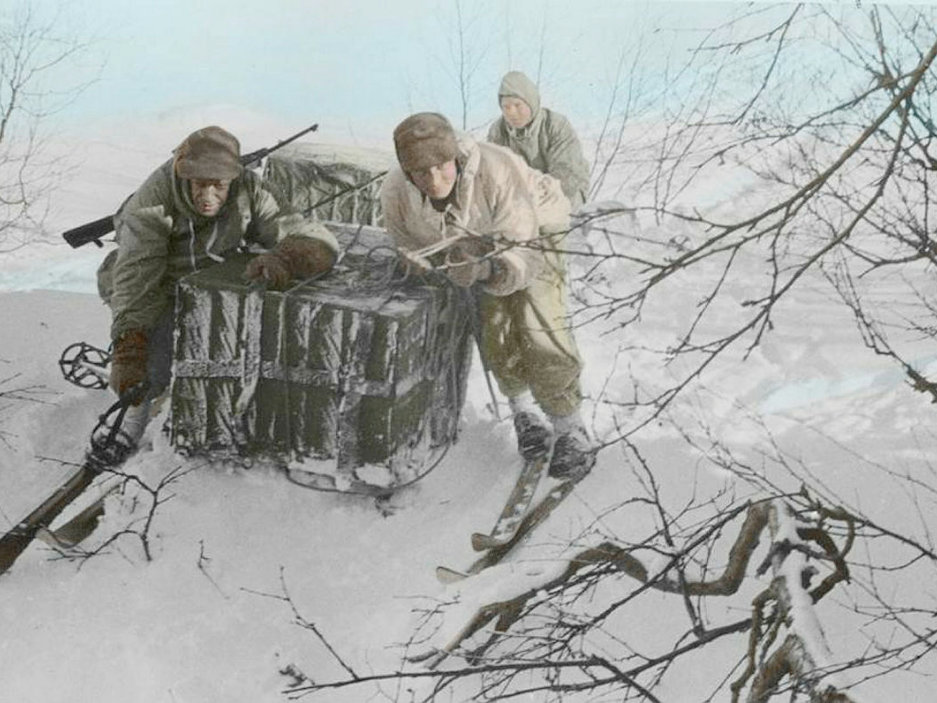
Operation continued after the war, but in the 1960s, new technology led to major changes. In 1971, the hydrogen plant ceased operation. It was demolished on 21 June 1977. The old power station can be seen once more. Today, Vemork looks like a fairy-tale castle on the edge of the cliff. Full of experiences for the whole family.
Experience more at Vemork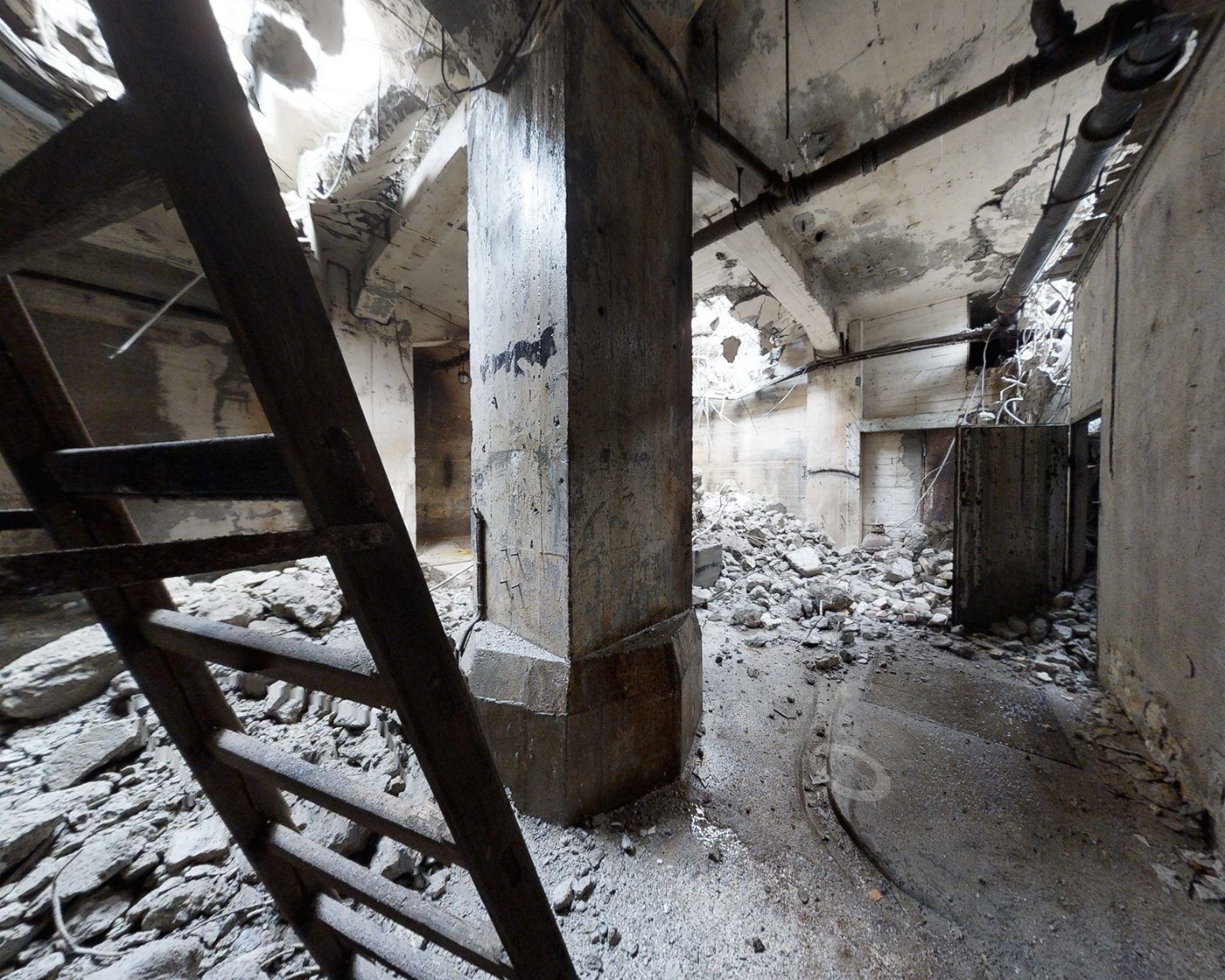
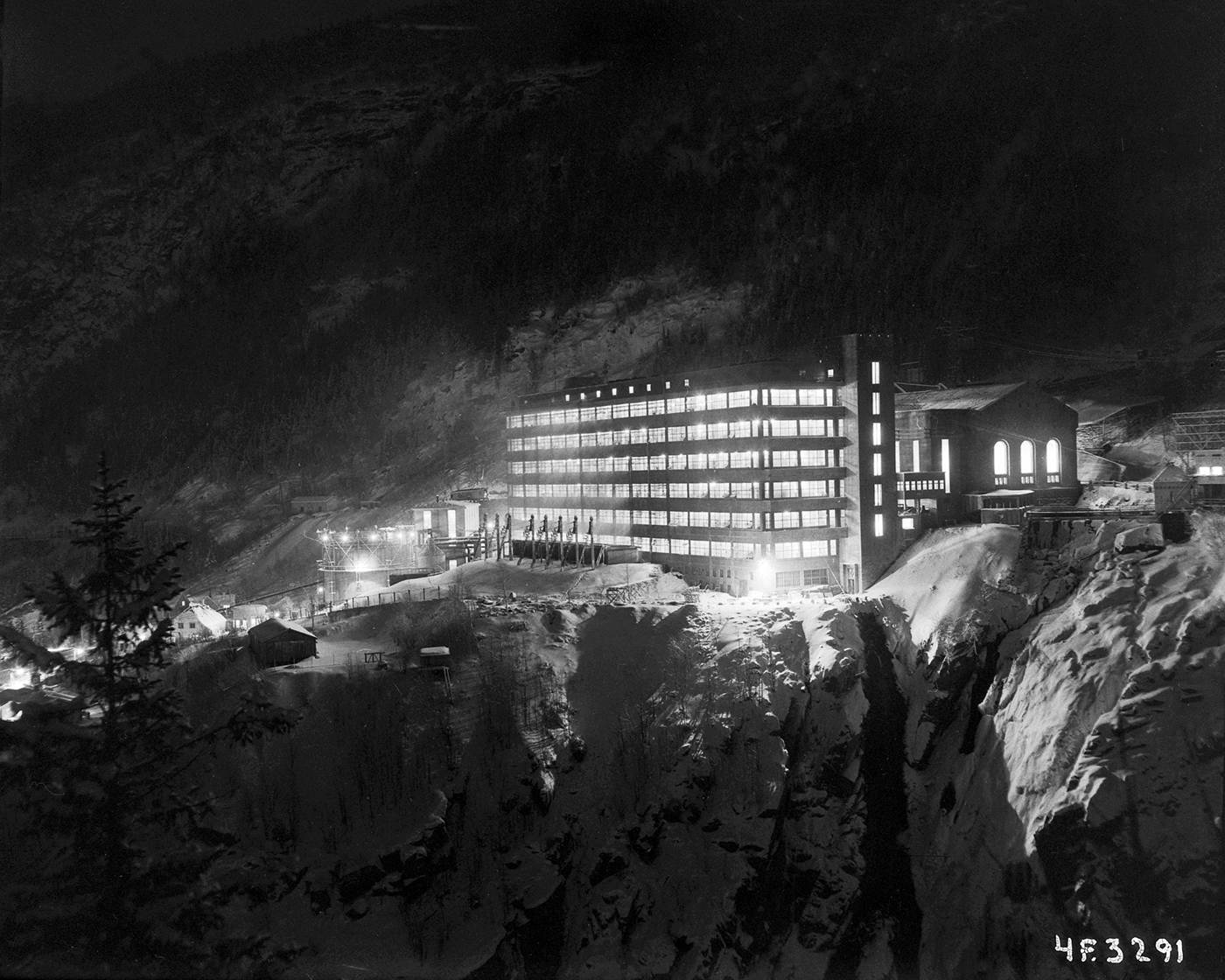
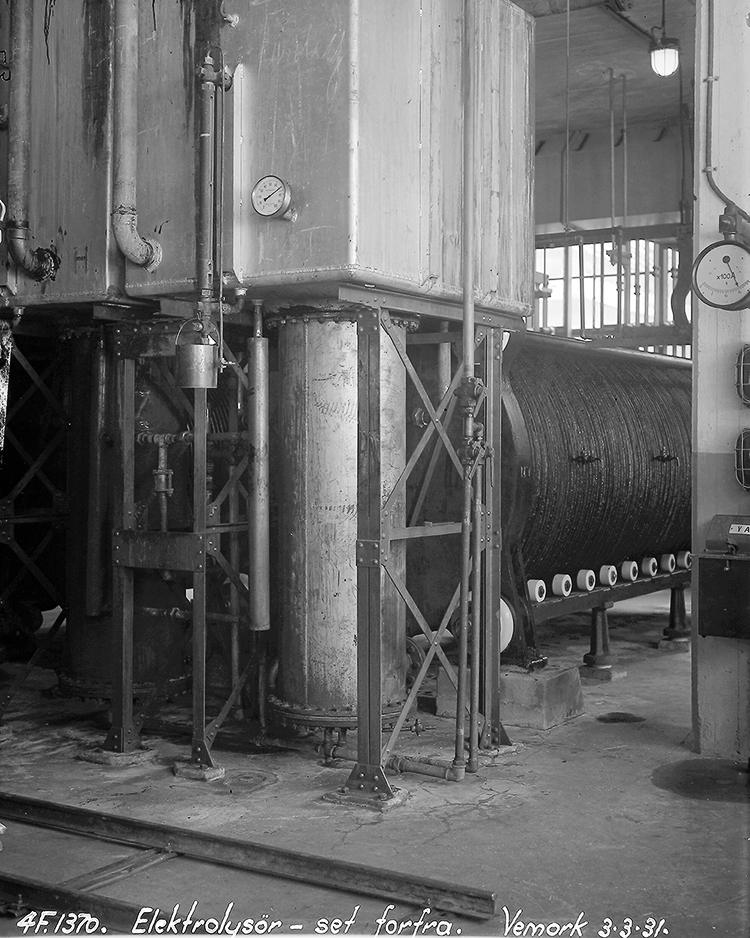
“Profound impressions in a magnificent location. Must be experienced.”
Norsk Hydro’s heavy water production at Vemork was a crucial part of the Nazi atomic project during World War II. It was deemed so significant that a total of four risky military operations were undertaken to halt it.
Read more about the operations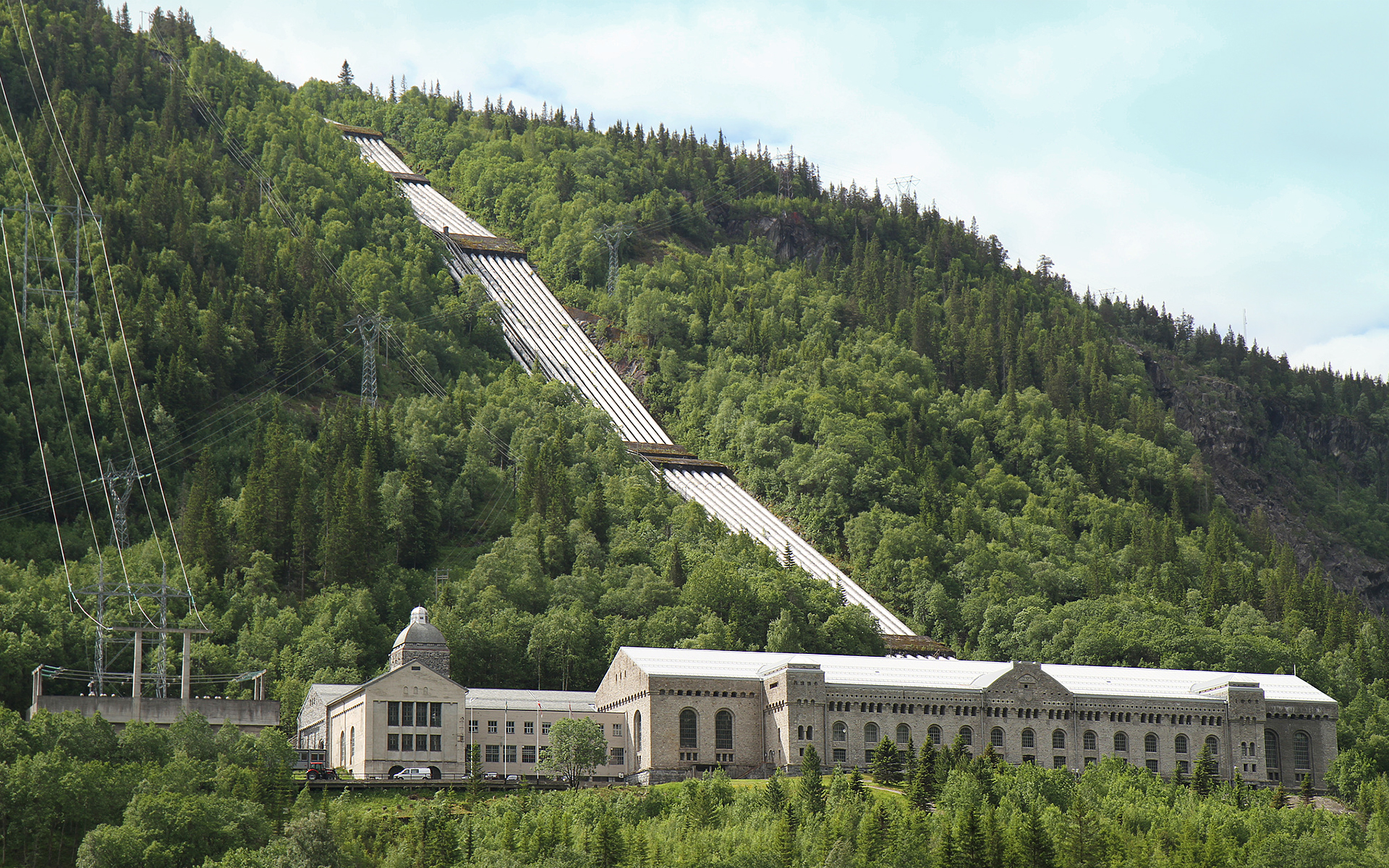
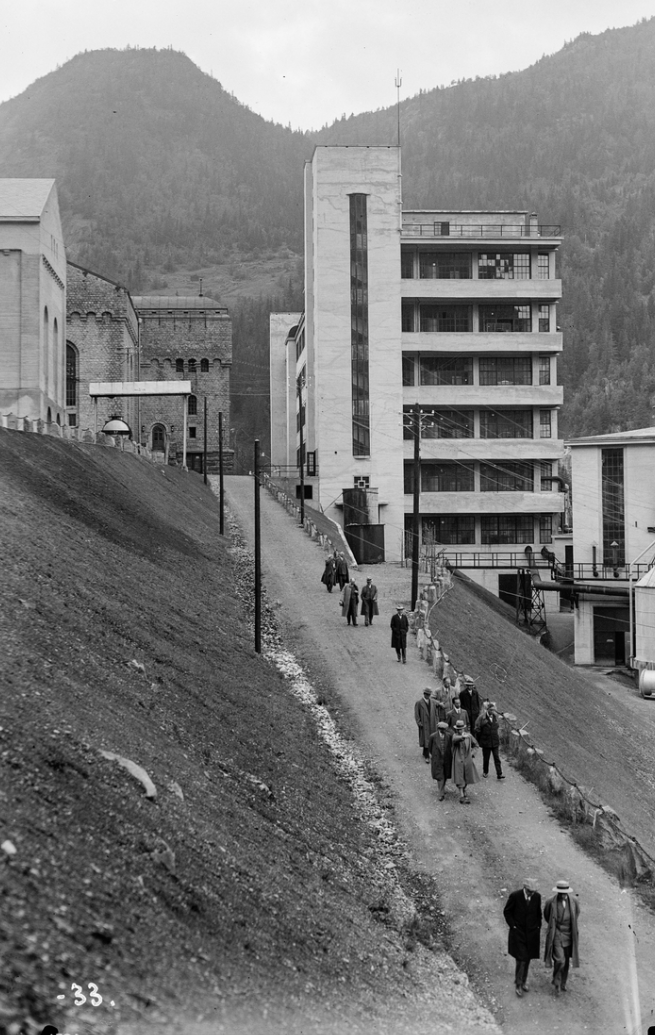
Who were the young Norwegian soldiers who risked their lives to carry out one of the most important and spectacular military operations during World War II?
Get to know the saboteurs